
Uživanje u nezadovoljstvu epskih razmjera.
Pop-band koji se referira na Rilkea.
Grandiozni hipsterski pop.
courtesyisafallacy.tumblr.com/
Manchester’s MONEY may have already established themselves as laureates of the unconventionally enthralling live performance – eccentric but loveable frontman Jamie Lee is well-renowned for his outlandish monologues and unabashed smooching of audience members – but capturing the energy and passion of a live performance on record is easier said than done. Luckily, MONEY’s hotly-anticipated debut throws down the gauntlet for what a truly organic and emotive album should be.
‘The Shadow Of Heaven’ tells of finding meaning in moments of total despair, of discovering that you’re alone in the world and wholly embracing it. Lee describes the album as a ‘hell-descent’ of sorts; like delving into the underworld, discovering a grand human truth, and returning to the surface with your vision of it. Such an approach to an album is audacious in itself, but the manner in which they’ve gone about it makes it all the more spectacular.
Confessional yet cryptic, Lee delivers his lyrics with an honesty that’s captivating. Every shaky, croaky wobble of the voice has been left for all to hear. As he strains to sing “every girl I’ve ever loved, closed their eyes” during ‘Goodnight London’, the intensity and frailty of his voice can be caught all at once. It’s a beautiful thing. There’s no desire to hide his clear passion underneath autotuned production. Because that would demean everything this album is about. Human weakness. Human doubts. Human mistakes.
The cavernous reverb of opener ‘So Long’, along with Lee’s (at times) angelic voice, awaken memories of church halls and cathedrals, perhaps nodding to the heavy religious themes contained throughout the album. ‘The Cruelty Of Godliness’ and title-track ‘Shadow of Heaven’ in particular showcase Lee’s voice at its most choirboy, but equally call religion into question, proclaiming “the cruelty of godliness within us, is his loneliness”. It’s these types of juxtaposition that provide some of the album’s most spectacular moments.
Backed by heavily layered, single-note guitar lines, hazy textures and washy drums, Lee’s vocals and lyrics are rightly left front and centre. The music provides a beautifully delicate backdrop, which can be heard at its finest on the majestic ‘Bluebell Fields’ and ‘Letters To Yesterday’. ‘Goodnight London’ and ‘Black’ show Lee at his most candid, just his voice and a piano allowing us a glimpse into his poetic, romantic view of the darker sides of city life.
If there is one fault, it may be that, at times, the production and backing is a little too restrained. There are moments during ‘Who’s Going To Love You Now’ and ‘Cold Water’ where it feels like the band needs to be fully let loose, but never quite reach the huge, impactful highs they should.
Which is a bit of a shame, but not enough to put any sort of damper on what is a near-masterpiece of a debut. It really is a thing of beauty, and gets better with every listen; one of the surest signs of something that will ultimately be deemed timeless. Just as Lee’s full-frontal photo had nothing to hide as it adorned MONEY’s debut single, ‘The Shadow Of Heaven’ cannot help but bare all, and that’s what’s truly special about it. - Nathan Standlee
As it did in the 80s and early 90s, Manchester (and that gritty Northern bit in general [see the upcoming 'B-town' scene]) is becoming a hotbed of musical activity. Just as Joy Division, New Order, and The Durutti Column proved decades ago, the region again has a trove of talent to offer the globe; and equally, just as those bands did in days gone by, they're formidable emotive powerhouses. Modern Mancunian outfit MONEY are fervently following in their footsteps, eschewing the insipid drivel of Oasis or The Stone Roses in favour of gutsy moments of bleeding-heart post-pop.
They trade in sacrosanct soundscapes comprising dew-coated synth harmonies, spindly webs of piano and the reverent vocals from outspoken bohemian Jamie Lee, who's mentioned that the impetus for their music is an "overall unhappiness for what [they] do." He's an enigmatic exhibitionist with a penchant for (artistically) whacking his junk out and frequently spouts mantras for the advancement of music as a sacred art form. They're fans of the poets Rilke and Kozlov. This is a band with fleshed-out ideals and a strident purpose to back up their supreme sounds and post-millennial hymns.
Their much-awaited debut LP, Shadow Of Heaven comes after a slew of sublime singles. 'Bluebell Fields' slowly swells and collapses like a wheezing lung; it's led by fuzzy guitar strings and the twinkling math-rock guitars - if it weren't for Lee's echoing vocals, this could be a cut from Everything Everything's Arc. 'Goodnight London' opens with fragile lines: "I fell in love with the night time/ she took me by surprise," from Lee's quivering lips. Cities are personified in this storm-battered wharf of a ballad; it's naked, raw and free from the high-budget production of Top 40 pop. Instead, we're given an organic, living-but-barely-breathing anthem of crushing despair. Not a happy song, no - more like an epitaph - but it's grandiose, skeletal and great nonetheless.
'Cold Water' is lost in the dreamy rock pools of a misty beach somewhere along the shores of some distant, fantastical land. It escalates like the brooding post-punk of Savages - Lee's creaking tones are reminiscent of Jehnny Beth's - and the hulking, emotional gravity of Nadine Shah's Nick Cave-iousness. Evolving from an isolate thread into an enchanting behemoth, it's a highlight on the record. 'Black' utilises the piano once more. It's another delicate ivory-tinkled ode, dabbling in dynamics and regularly scaling registers. Lee can deliver an almost-silent falsetto and a booming gruffness - the track is a brilliant platform for his pipes. 'Who's Going To Love You Now' is drizzled in a thick grey fog, with illustrious hook-peaks penetrating the tangible textures, shining through the murkier undergrowth - it's considerably more optimistic (-sounding) than much of the LP, providing a welcome new take on MONEY's cynical pop.
We've been waiting for this record since the first enticing noises hit our ears, and it can be safely said that it does not disappoint. There's a rich vein of sparkly feelings to be mined on Shadow Of Heaven, and repeated listens are highly recommended - at first it may appear a dour tantrum, and though that's still present after a few plays, you begin to find and grab onto the fragments of hope and vague optimism. The dimensions are rife within the album: lyrically, tonally and instrumentally; you'll be in awe of the music. Immerse yourself - in the shade is probably more apt, but you'll find it a cathartic listen on balmy evenings too. - Larry Day
At every turn, Jamie Lee and his troupe of capital R-romantics set themselves up for a fall. From adorning their debut single with a shot of Lee, stark-bollock naked, clutching a rifle, to the spidery, philosophical poetics of their interview personas, and the grammar-defying, two fingers up to SEO analysts and sub-editors that their name represents, M O N E Y pitch themselves as aggressively, unashamedly radical. As foremost proponents of the rejuvenating anti-aesthetics purported by Salford’s SWAYS label, and their self-labelled project of cultural regeneration, their mission is a purifying one. So impassioned is their approach that it comes across as not just a wish to start things afresh, and think outside the proverbial box, but to shatter its fourth wall so vigourously that they might shock anybody and everybody into subscribing to a new set of ideals with which to process the world.
Step one: the evisceration of power structures. Sound like a mouthful? It’s more cannily introduced in the album’s opener ‘So Long’, and its refrain of “God is dead”. Their approach is ostensibly reminiscent of aspects of postmodernism – their constant musing on essential value, their discontent with imbued hegemonic structures, and a move from totalising metanarrative to finding the meaning in individual action, moment, and instinct. The band’s frequent reference to the discourse of traditional religion feels equally postmodern in its mimicry technique – that with a deprecating, knowing doff of the cap to the metanarrative they seek to undermine, they can absolve language of its imbued meaning, and find a new spirituality. The choral tinge of current single ‘Hold Me Forever’ feels more a tribute to the ephemeral, semiotic warmth of a human touch, rather than the implied eternal in a religious community.
New Eden has undergone a venue shift, and upped sticks to the North-West, as iterated by the band’s propagandist-style slogan: “Manchester is Paradise”. Rather than apples and fig-leaves, however, it’s the city’s doomed, purgatorial shadow, its fault-line quality of feeling simultaneous sacred and profane, and honest hopelessness that makes it a modern candidate. With no gestalt coherence, only everyday acts can carry meaning – the search is for the “human grail”, not a holy one.
As lofty as these intents might feel, you’d never know from their sound. Indeed, one criticism of the album is that it occasionally feels too removed from the grit Lee seems informed by – that their promotion of the everyman is not easily accessible, and feels like they’re having you on. The intimate beauty of closer ‘Black’, with its dark tales of “kids fucking in cars”, and literal blood on the tracks, provide a rewarding return to earth in its observed realism. For the most part, however, the record’s sonic cocktail is much less sharp than the rhetoric of the barman, and revels in a ethereal, haunting beauty – laced with swooping, glassy atmospherics, breathless euphoria, and just a touch of early Verve. Rather than the surreal menace of their off-page musings, their lush, swelling tones feel optimistic, and never overly unconventional. As much as the album encourages a deeper engagement (or perhaps gross overthought), it is easily satisfying on a surface level. As tracks bloom into harmonic, washy crescendos, their wordless jubilation is utterly infectious, dark turns such as the sobering splash of ‘Cold Water’ feel chilling, and the intimate moments, which find Lee alone at the piano, show his ability at abstract storytelling, and incredible presence. Attendance at any live M O N E Y show reveal his enigmatic lunacy – whether he is sprawled, shaking amongst the sweating hordes, or delivering his lines from the bar, Lee is enthralling. The power of these individual moments, live or on record, give credence to their aesthetic – that the spirituality in circumstance, and the strange confluence of identity and surroundings carry a power, and instinctive meaning, that outweigh any institutionalised power relations.
Agree with them, or write them off as abstracted lunatics, The Shadow of Heaven is an incredible persuasive push for thoughtful guitar music, in an often vacuous mainstream. The best manifestos aren’t written to be easily digestible, or to be agreed with en-masse – they’re reactionary hyperbole from the disaffected. M O N E Y know that they, and the rest of us, fell a long time ago, but on the basis on The Shadow of Heaven, their passionate howl from the gutter might be the only way of looking up at the stars. The total commitment of the band to the narrative of a classic “Hell-descent” – Blake reborn in Salford – transcends any petty cliché, or empty marketing ploy, and touches on some deeper plane. It’s either a depthlessly engrossing narrative from an active agnostic, satirizing the thought that one answer could be the solution to every problem, or I’ve been stitched up into writing “hegemonic” in an album review. -
M O N E Y could be something. Something untoward and contrary, oblivious and self-contained, something shining and unsullied amidst that morass of filthy flotsam spewed out by spreadsheet labourers, 1FM 'movers', the vampiric middle management whores, a coterie of dead-eyed bloodsuckers whose role has absolutely nothing to do with the freeing and cajoling and expanding of young minds to seek change and discord and dissent in the hearts of their listeners, but instead is all about the dulled lustre of fame, the thrill of affixing their charges' names to a (mere) scene-level consciousness that makes temporary superstars of the (un)lucky few. NME front cover, here we come!
Weren't bands supposed to become part of you, part of your life, more important than your life? Cross over so far into your very being that you'd die for them because you'd been sucked so far into their giddy capers, you'd almost believe they'd die for you. No – don’t laugh.
Wasn't music, popular music in all its wild and unfettered glories, supposed to be - breathe deep – akin to, and aspire to, the greatest art? Oh, but anyone can play guitar, right? Was that our greatest mistake, that gate-opening cultural shift that promoted the dull-witted idea that pop music was for the masses and by the masses? A de-glammed utilitarian response to the concrete and clay. Not so much an escape from the backstreets and the urban workaday but a celebration of them. Rather than the Springsteen ideal – celebrate the little guy, sure, but raise a fist for the glory of triumph and rising above - a revelling in the muck and squalor of defeat and, um, ordinariness.
So show us the M O N E Y.
And they could be something. Really. And here's their debut album and it knows so much. It's generous. Let it in. It knows grace, knows beauty, knows the (im)possibilities of love. It knows that we're little more than animals and it knows we can be heroes but, you know, only when we can be arsed. It is utterly, unspeakably, of itself. It delivers the burning, questioning vision of singer Jamie Lee through a vividly realised series of half narratives and dreamscapes. It is a world removed from sly or knowing or the desperate, keening retreat to a safety net of irony. It is sincere in the way that only the honest and free are (any longer) able to be. It is impeccably serious, emerges as a declamation, a tract, implacably un-self aware.
And, of course, it dares to call itself The Shadow of Heaven. My. Because it at first appears to be chasing that cornerstone requirement for a slight work looking for support from a high falutin' title to elevate, to fake depth and meaning, you'd be forgiven for presuming it's just that. Don't. Sure, a beleaguered sales pitch needs a name and you can call it what you want, Mr Client, as long as it carries with it that ballooning, bumptious sense of self-importance, cod-significance to warm the buyer's heart and sweeten the deal (A Rush of Blood to the Head), or a near-eponymous shorthand, deconstruction to the point of virtually nothing, a retreat from the grand into the realm of the agreeably small (19.)
Think about that title. Four words that destroy in a heartbeat the architecture of faith. Four words that desolate the crumbs of hope and dreams. Roll up, roll up! All hope is lost, folks! Was it not Mark Twain, a wily old fucker at the best of times, who gave us one of the great truisms of modern art - that humour's source lies not in joy, but sorrow. "There is no humour in heaven," he reckoned. He'd have nursed a pint or two with Lee at the drop of a hat.
All hope. Lost. Only not. Because M O N E Y deal in the fragmentary, a nuanced, ever-shifting dance that skips lightly around the blocky absolutes. They explore and they shade the primal drudge of what it is to be human. They acknowledge hope but they get there via something altogether more fulfilling - certainly for the listener - than mere world weary cynicism: that title might speak of condemnation but The Shadow of Heaven reads like a benediction. It's difficult to recall when last a band dared to venture out so alone, so open-eyed and so open to the possibility that we might not be doomed after all without sounding like empty-headed fools.
On one level, TSOH is all about mood and tone. But this is no cheap, cheaply artful production piece. Rest assured, it's not an Indie Album and M O N E Y are not an Indie Band. Its startling opening, the skittering ‘So Long (God is Dead)’, begins as chill hymnal, Lee’s voice alone and bare. It’s the voice that best identifies them at this stage with its impossible range and Lee’s ability (and propensity) to leap from chorister dramatics, scaling impossible highs, to a low-slung, raggedy burr.
The Editor, immune to the usual trumpeting, offers the usual caution: “Please tell me they don’t sound like Strangelove or Marion.” They don’t. They also don’t sound anything at all like Elbow, though you suspect lazy column fillers will tick the boxes marked ‘stately’ and ‘ethereal’ and draw the wrong conclusions entirely. They might, particularly on the rippling, almost formless ‘Bluebell Fields’, sound a little like The Verve. And throughout, against a backdrop of beautifully arranged harmonics, a properly generous ‘sound’ that almost seems to push the instruments (guitars, bass, drums, piano, little more) back into the mix so far it’s difficult to pick out just one, they call to mind Talk Talk circa Spirit of Eden. Every now and then, Lee’s tone is so clean and he sings with such freedom, he puts you in mind of Thom Yorke; or he’ll let a note linger in the throat and he sounds like a young Ian McCulloch. But, ultimately, M O N E Y sound an awful lot like M O N E Y.
Prod for weak spots: there are a couple. 'Hold Me Forever', once you've developed a taste for the more off-kilter, less graspable moments, is a bit upfront. On its side is a desperate, flailing candour but its soaring hook is a bit 'Bed Shaped'. Is that a bad thing? Probably not. Do M O N E Y connect more deeply, more intimately, when they spin out a trail behind them, make the listener work that little bit harder? Most definitely. ‘Goodnight London’, a maudlin lullaby that recalls “all the boys I’ve ever loved”, with just Lee and the piano, clocks in at seven minutes and many will fall deeply for it, no doubt, but it slams brakes on the growing momentum early on.
But the highlights are unforgettable and connect deeply, deeply in a way that sees you drifting into key phrases – both musically and lyrically – throughout your day, a line evocative enough to feather its way into the byways of your subconscious and light enough to lodge there for an age before you scratch your head and go ‘Oh! What’s that?’ If ‘So Long (God is Dead)’ is more playful than preachy (“It’s a shame that God is dead, but he could come back…”), the album starts to develop a more ominous tone. ‘Who’s Going to Love You Now?’ flirts with that chant from Arcade Fire’s ‘Wake Up’ before pulling the rug.
‘Letter to Yesterday’ plugs in to something altogether gutsier: throbbing bass and electric guitar. Lee’s words twist and fly: “I sent a letter to yesterday / It told you everything would be alright…” You don’t believe a word. Later: “You’re my midnight sky / I curse myself for such a fragile frame”. Here’s devotion, naked, but soured by the weight of truth. ‘Cold Water’ is harder to grasp (“Cold water…it’s running out…falling from the tall buildings…”) but no less physical. M O N E Y manage the twin thrills of quiet and loud with disarming guile. But they close on a whisper, almost. ‘Black’ is, again, Jamie Lee and piano but here he’s grounded and (mostly?) avoids the cover of metaphor. Its most startling lines (“kids are fucking in cars…”, “red blood on the tracks…") will secure the headlines, but it’s the opening couplet that suggests Lee knows something about language, that he should dare to be expressionist and free. “Black is the first and last colour of the scheme / The crooked line, the hollow scene,” he sings, and the world closes in.
Aided by a vision that feels distinct and authoritative (and in Jamie Lee you hope we might finally have found a pop star in the truest sense, one whose charisma is a by-product of the size of his intellect and his soul, rather than his mouth), it sneaks up on you, this almighty record. Its unyielding faith, its devastating belief (in you, me, and most definitely itself) and its thrusting search for something other than this, highlights its million contradictions and it nearly becomes what it seeks to avoid, or, at the very least, question. But fear not. The shadow of heaven is cast long, M O N E Y seem to say, but we’re fools if we falter and settle for the comfort of the dark. A paradox, then, built on devilment and yet littered with articles of faith.
music.thedigitalfix.com/
The background: Money are from Manchester and their Tumblr contains a link that redirects you to the Wikipedia page for Austrian poet Rilke, while their Facebook proposes that "courtesy is fallacy" and features a "eulogy for the death of everything". This is about all you need to know to get a sense of what Money are about, what they sound like and stand for. They are unlikely to spend too much time hanging around with Viva Brother, put it that way, and if they evoke the spirit of any Manchester act past it would be Joy Division not Oasis. Basically, if Manic Street Preachers at their most arty and pretentious (good things, we're sure you'll concur) came from Rusholme not Blackwood, they would be Money. They have a similar air of mystery and cerebral intensity to Wu Lyf, with a vocalist who can do enigmatically gruff as well as fervid and angelic. Personally, we haven't been fervid or angelic since the early 90s, so as you can imagine this is something of a boon.
They've been going for little more than a year and already they've been through several transformations, as well as numerous changes of name including Youth, Books and Meke Menete. There is a song by them in their latter incarnation on YouTube called Lonely Sexy Death – how Richey Edwards is that title?! Anyway, they put their inability to stick to a name down to their short attention spans and a general dissatisfaction with everything and refusal to see the good in anything they do. There is a word for this: "anhedonia", a syndrome meaning an inability to experience pleasure (it was also, incidentally, the original title for Woody Allen's Annie Hall), but we're going to coin a neologism for their version of it: Manhedonia, to be used to describe that genus of Manchester band who seem to relish their own discontent. "What constantly drives this band is an overall unhappiness with what we do," declares frontman Jamie Lee, a young ideologue known for his heated pronouncements such as "music should be sacred". He's also known for getting his kit off (he appears naked on the cover of the band's debut single), but that's by the by. No, the sacred thing is more relevant: Money chose to play a gig recently at Salford's Sacred Trinity Church, where they staged a "multi-media spectacular" involving all manner of video and art installations. "If you truly love and trust a band," opines Lee (he doesn't say things, he opines), "then you'll gladly surrender yourself to their way of thinking – allow those musicians onstage to communicate those songs in a way that's completely truthful to their art. That sense of sacredness has perhaps been lost in the last few years."
Money's music matches Lee's rhetoric in terms of quasi-religious fervour. Who's Going to Love You Now? is their most widescreen, panoramic and Spectoresque moment, but The Sea is no slouch when it comes to tremulous guitar filigree and shadow and impassioned vocals: imagine the lead singers of Wu Lyf and Glasvegas in a cry-off, which is like a really zealous version of a face-off. On Goodnight London the voice is more tenor-ish and quavery, the song bearing traces of a cracked Big Star ballad circa their doomed third album, Sister Lovers. It's not quite the full Holocaust, but certainly you wouldn't want to use it to soundtrack next year's Christmas party. It's an intriguing title, too, and provocative, of course, coming from a bunch of Mancs, given that city's perennially adversarial relationship with the capital. Frankly, we're offended by the kiss-off, but then again, we tend to agree with the notion of the fallaciousness of politesse. - Paul Lester
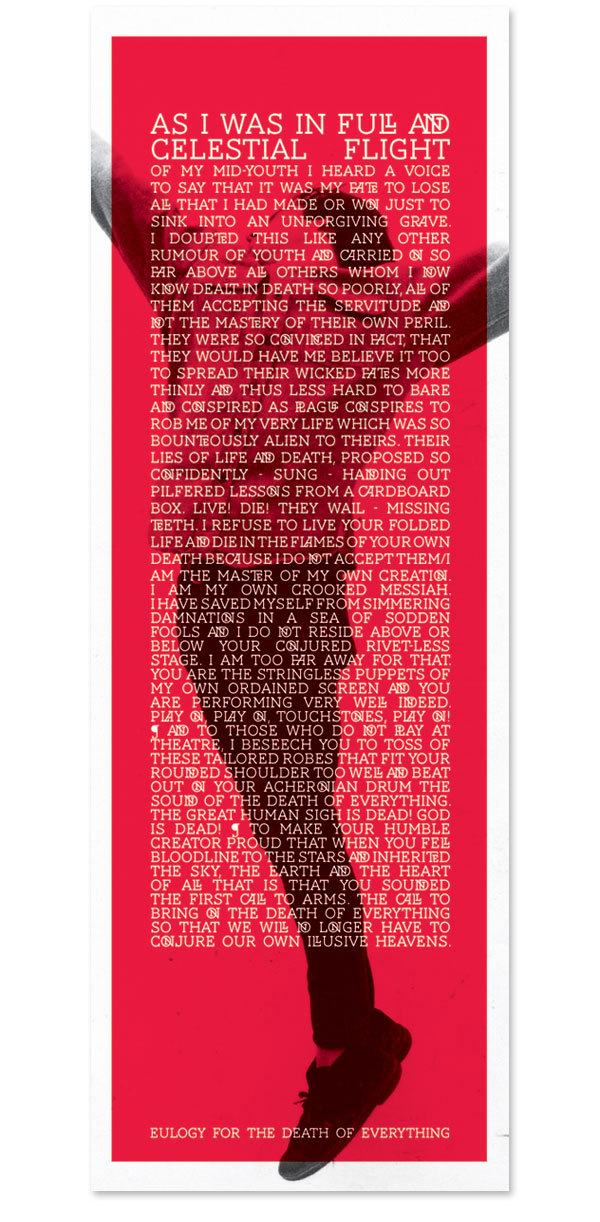
tumblr:
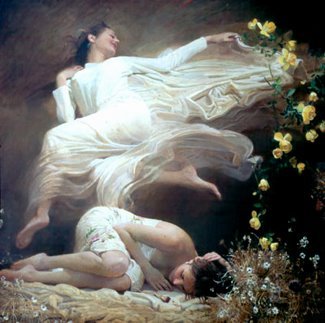
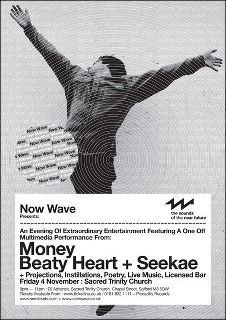
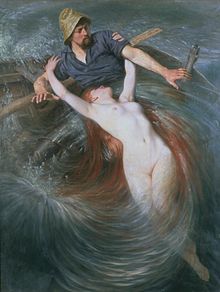
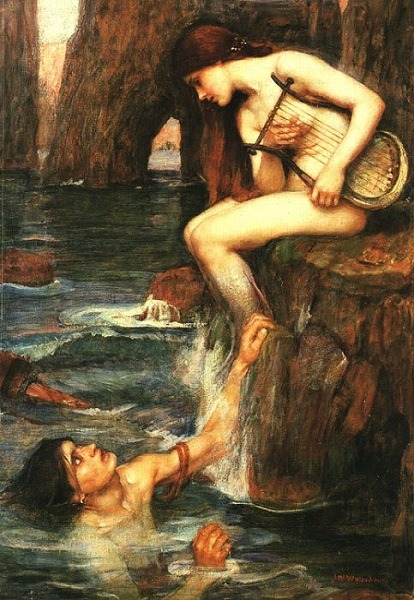
An Arundel Tomb
Side by side, their faces blurred,
The earl and countess lie in stone,
Their proper habits vaguely shown
As jointed armour, stiffened pleat,
And that faint hint of the absurd -
The little dogs under their feet.
Such plainness of the pre-baroque
Hardly involves the eye, until
It meets his left-hand gauntlet, still
Clasped empty in the other; and
One sees, with a sharp tender shock,
His hand withdrawn, holding her hand.
They would not think to lie so long.
Such faithfulness in effigy
Was just a detail friends would see:
A sculptor’s sweet commissioned grace
Thrown off in helping to prolong
The Latin names around the base.
They would not guess how early in
Their supine stationary voyage
The air would change to soundless damage,
Turn the old tenantry away;
How soon succeeding eyes begin
To look, not read. Rigidly they
Persisted, linked, through lengths and breadths
Of time. Snow fell, undated. Light
Each summer thronged the grass. A bright
Litter of birdcalls strewed the same
Bone-riddled ground. And up the paths
The endless altered people came,
Washing at their identity.
Now, helpless in the hollow of
An unarmorial age, a trough
Of smoke in slow suspended skeins
Above their scrap of history,
Only an attitude remains:
Time has transfigured them into
Untruth. The stone fidelity
They hardly meant has come to be
Their final blazon, and to prove
Our almost-instinct almost true:
What will survive of us is love.
Philip Larkin
Side by side, their faces blurred,
The earl and countess lie in stone,
Their proper habits vaguely shown
As jointed armour, stiffened pleat,
And that faint hint of the absurd -
The little dogs under their feet.
Such plainness of the pre-baroque
Hardly involves the eye, until
It meets his left-hand gauntlet, still
Clasped empty in the other; and
One sees, with a sharp tender shock,
His hand withdrawn, holding her hand.
They would not think to lie so long.
Such faithfulness in effigy
Was just a detail friends would see:
A sculptor’s sweet commissioned grace
Thrown off in helping to prolong
The Latin names around the base.
They would not guess how early in
Their supine stationary voyage
The air would change to soundless damage,
Turn the old tenantry away;
How soon succeeding eyes begin
To look, not read. Rigidly they
Persisted, linked, through lengths and breadths
Of time. Snow fell, undated. Light
Each summer thronged the grass. A bright
Litter of birdcalls strewed the same
Bone-riddled ground. And up the paths
The endless altered people came,
Washing at their identity.
Now, helpless in the hollow of
An unarmorial age, a trough
Of smoke in slow suspended skeins
Above their scrap of history,
Only an attitude remains:
Time has transfigured them into
Untruth. The stone fidelity
They hardly meant has come to be
Their final blazon, and to prove
Our almost-instinct almost true:
What will survive of us is love.
Philip Larkin

KRAKEN
—OTIS
KRAKEN
—NIJINSKY.AND.DIAGHLIEV.IN.ST.PETERSBURG.DECEMBER
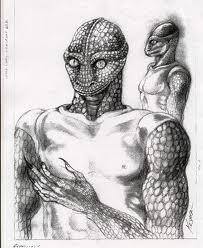
'PARADISE IS THE PLACE WHERE PEOPLE CANNOT GET WHAT
THEY WANT. IT IS WHEN PEOPLE GET WHAT THEY WANT THAT THEY BEGIN TO
CREATE HELL.'
J.J.L
J.J.L
'IF YOU COMPLY WITH OTHER PEOPLE YOU COMPLY WITH MURDER.'
J.J.L
J.J.L
"I DON’T WANT ANY GAY PEOPLE HANGING AROUND ME WHILE I’M KILLING KIDS.’
HEY DON’T WORRY, IT’S ALL BULLSHIT AND YOU’RE GOING TO DIE
HEY DON’T WORRY, IT’S ALL BULLSHIT AND YOU’RE GOING TO DIE
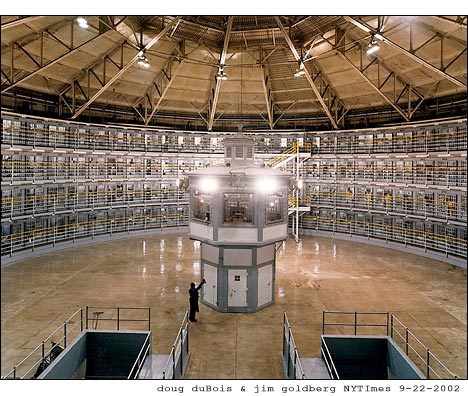
http://en.wikipedia.org/wiki/Lanark:_A_Life_in_Four_Books
25th Jul 2011 | 1 note
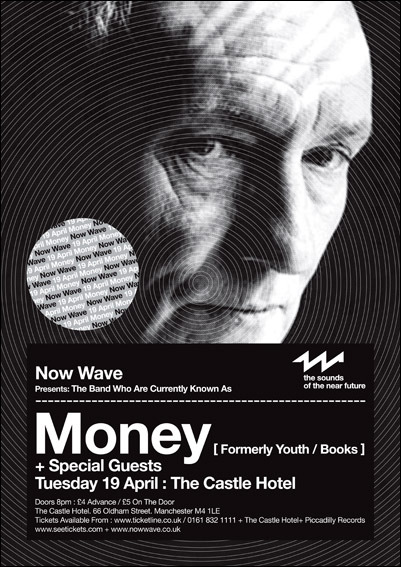
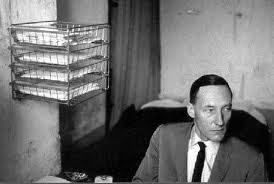
25th Jul 2011 | 1 note
'YOU MAY ONLY SEE WHAT YOU HAVE ALREADY SEEN.' F.P.

GIRLS
The street lamplight stains the curtains
And reveals a solitary prowling cat
After a moment a line of light strokes the ceiling from a lone passing car
Drifting, ghostlike, on the dark street
Then silence again except for the clock
And her breathing
Slow and comforting
Like a child
I am in love again
In the dark damp night of the city
Which is paradise
J.J.L
LONELY SEXY DEATH
'ART IS A KIND OF DEATH… AND, LIKE TRUE DEATH, MUST BE HIDDEN FROM THE WORLD'
MonEy
—THE BOTTOM OF THE SEA AT MIDNIGHT
UPWARDS’ FOURTEEN
SINKING
ARE
MAD YEARS
THE
BUT
SINKING UNDER
ALL
ARE THE
'WE
SEA
SINKING
ARE
MAD YEARS
THE
BUT
SINKING UNDER
ALL
ARE THE
'WE
SEA

Each tear: a row of stars,
Each pain: a sun.
A Sun that tightens air
And a light that knows not light itself,
That knows but mass,
And by total force
Does eat up the heavens
To fill its maddening sight.
A dainty sum!
Made of mind-sacks that never die,
Of Suns that are always weeping.
J.J.L
Each pain: a sun.
A Sun that tightens air
And a light that knows not light itself,
That knows but mass,
And by total force
Does eat up the heavens
To fill its maddening sight.
A dainty sum!
Made of mind-sacks that never die,
Of Suns that are always weeping.
J.J.L
"The only people that make you do things that you don’t wanna do are other people’ C. M
This is a cover of C. M’s song ‘Other People’
This is a cover of C. M’s song ‘Other People’
As I was in full
and celestial flight of my mid-youth I heard a voice to say that it was
my fate to lose all that I had made or won just to sink into an
unforgiving grave.
I doubted this like any other rumour of youth and carried on so far above all others whom I now know dealt in death so poorly - all of them accepting the servitude and not the mastery of their own peril.
They were so convinced, in fact, that they would have me believe it too, to spread their wicked fates more thinly and thus less hard to bare and conspired, as plague, to rob me of my very life which was so bounteously alien to theirs.
Their lies of life and death proposed so confidently sung — a choir of idiots - handing out pilfered lessons from a cardboard box.
Live! Die! they wail, missing teeth.
I refuse to live your folded life and die in the flames of your own death because I do not accept them!
I am the master of my own creation.
I am my own crooked messiah; I have saved myself from simmering damnations in a sea of sodden fools and I do not reside above or below your conjured rivet-less stage.
I am too far away for that.
You are the string-less puppets of my own ordained screen and you are performing very well indeed. Play on! Play on! Touchstones, play on!
Have you seen the motorcar magazines?
If that is a metaphor then it is a sad one.
I will be a tyrant of my own proclamations and a pike-man at Bannockburn.
I will sell you jack rabbits a’shack Mississippi Moon sky plain full of night-less wonders.
Sweet tasting super juice among reeds and the skirt of a young banished girl flying wild in technicolour plumage high on a cool Delta red moon breeze.
The same brook breath that chimes in and wrestles with the branches of trees and the fur of prairie creatures.
The dust of the bedroom floor is the dust of the road too.
The wolf is a good friend and he travels too through the night.
Hiding in shadows of the faint moonlight spread like a quilt over the parched hot earth.
He is well adjusted to this world during which most are asleep and elsewhere; his soft pads caress sand and stone and fibre and his sobriety seeks and feels each thistle hair, each hidden player of the cricket choir, the course and the current of the wandering air and all others, the beetles hopscotch journey through hell; architect of sand like mountain boulders, and though he is not of man, he knows there is something lurking in the dark, some thing that makes him tread quickly over the open road and peering down a heavenly corridor of corn and suspect the worse, then spooked, moves on.
Stalked by some unknown enemy behind the darkness and beyond the light of red dawn.
With a single breath, he knows the majesty of our unreason.
The small Red Indian girl’s neck and breast makes me swell with love, with night, with her grey brown ancestors.
I taste the pines and conifer needles beneath her skin, the icy spring and fresh pools full of glimmering trout.
If they do come looking, tell them this is where I lie.
And to those who are do not play at theatre; the malcontent, the malevolent, the mad.
I beseech you to toss off these tailored robes that fit your rounded shoulder too well and pick up your drum to beat out the sound of the death of everything before all vacant eyes.
Everything that is plain, that is grey must perish.
To make your humble creator proud that when you fell bloodline to the stars and inherited the sky, the earth and the heart of all that is that you sounded the first call to arms.
The call to bring on the death of everything so that we will no longer have to conjure our own illusive heavens.
J.J.L
I doubted this like any other rumour of youth and carried on so far above all others whom I now know dealt in death so poorly - all of them accepting the servitude and not the mastery of their own peril.
They were so convinced, in fact, that they would have me believe it too, to spread their wicked fates more thinly and thus less hard to bare and conspired, as plague, to rob me of my very life which was so bounteously alien to theirs.
Their lies of life and death proposed so confidently sung — a choir of idiots - handing out pilfered lessons from a cardboard box.
Live! Die! they wail, missing teeth.
I refuse to live your folded life and die in the flames of your own death because I do not accept them!
I am the master of my own creation.
I am my own crooked messiah; I have saved myself from simmering damnations in a sea of sodden fools and I do not reside above or below your conjured rivet-less stage.
I am too far away for that.
You are the string-less puppets of my own ordained screen and you are performing very well indeed. Play on! Play on! Touchstones, play on!
Have you seen the motorcar magazines?
If that is a metaphor then it is a sad one.
I will be a tyrant of my own proclamations and a pike-man at Bannockburn.
I will sell you jack rabbits a’shack Mississippi Moon sky plain full of night-less wonders.
Sweet tasting super juice among reeds and the skirt of a young banished girl flying wild in technicolour plumage high on a cool Delta red moon breeze.
The same brook breath that chimes in and wrestles with the branches of trees and the fur of prairie creatures.
The dust of the bedroom floor is the dust of the road too.
The wolf is a good friend and he travels too through the night.
Hiding in shadows of the faint moonlight spread like a quilt over the parched hot earth.
He is well adjusted to this world during which most are asleep and elsewhere; his soft pads caress sand and stone and fibre and his sobriety seeks and feels each thistle hair, each hidden player of the cricket choir, the course and the current of the wandering air and all others, the beetles hopscotch journey through hell; architect of sand like mountain boulders, and though he is not of man, he knows there is something lurking in the dark, some thing that makes him tread quickly over the open road and peering down a heavenly corridor of corn and suspect the worse, then spooked, moves on.
Stalked by some unknown enemy behind the darkness and beyond the light of red dawn.
With a single breath, he knows the majesty of our unreason.
The small Red Indian girl’s neck and breast makes me swell with love, with night, with her grey brown ancestors.
I taste the pines and conifer needles beneath her skin, the icy spring and fresh pools full of glimmering trout.
If they do come looking, tell them this is where I lie.
And to those who are do not play at theatre; the malcontent, the malevolent, the mad.
I beseech you to toss off these tailored robes that fit your rounded shoulder too well and pick up your drum to beat out the sound of the death of everything before all vacant eyes.
Everything that is plain, that is grey must perish.
To make your humble creator proud that when you fell bloodline to the stars and inherited the sky, the earth and the heart of all that is that you sounded the first call to arms.
The call to bring on the death of everything so that we will no longer have to conjure our own illusive heavens.
J.J.L
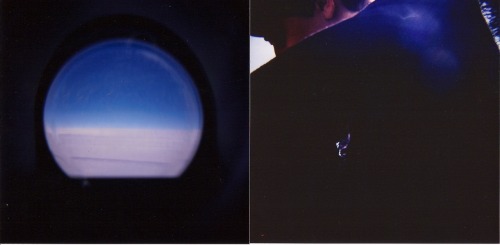
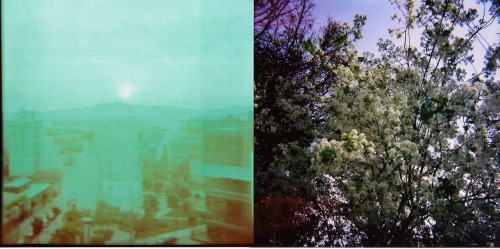
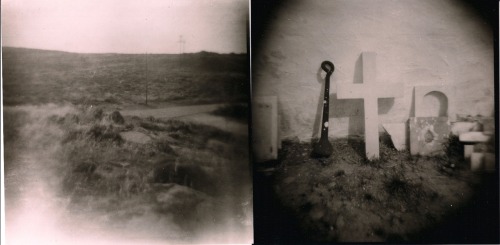
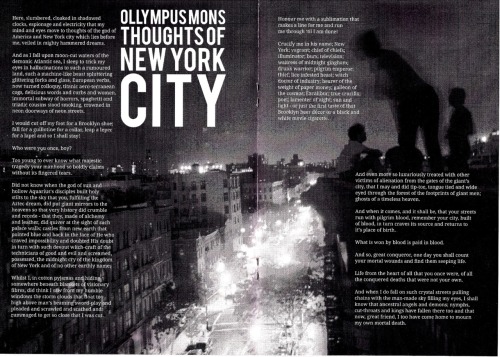

Nema komentara:
Objavi komentar